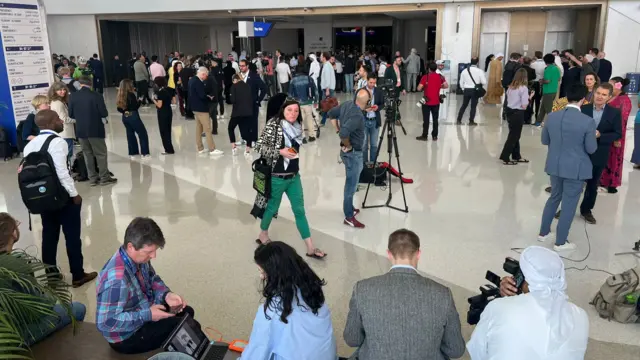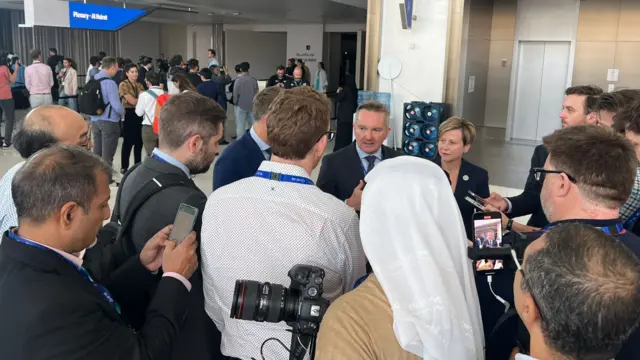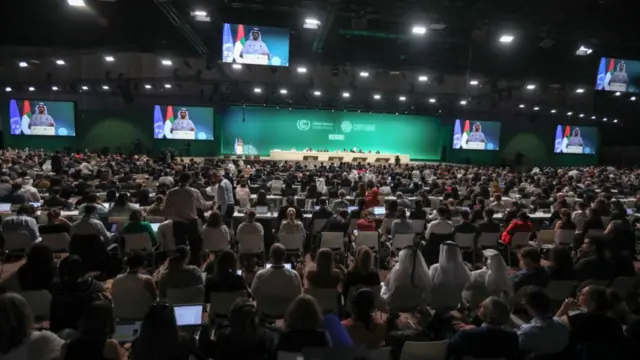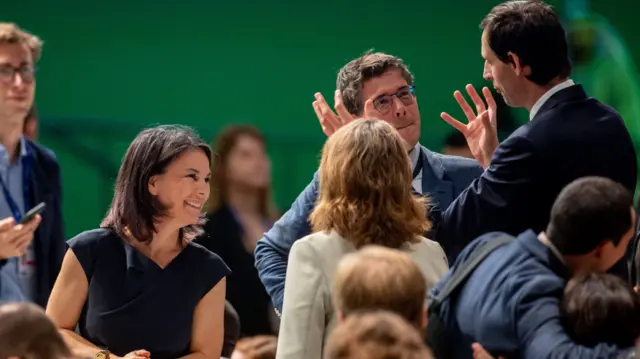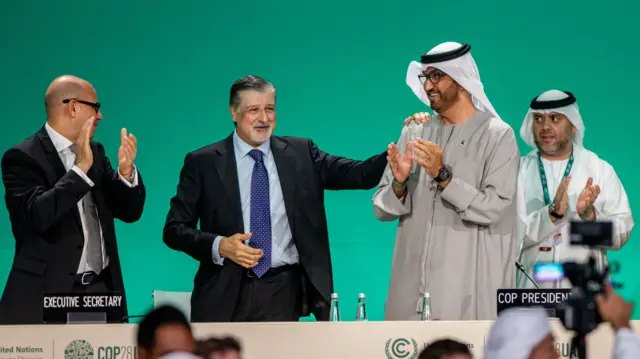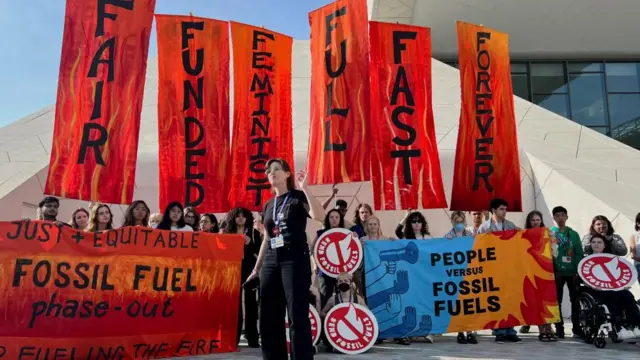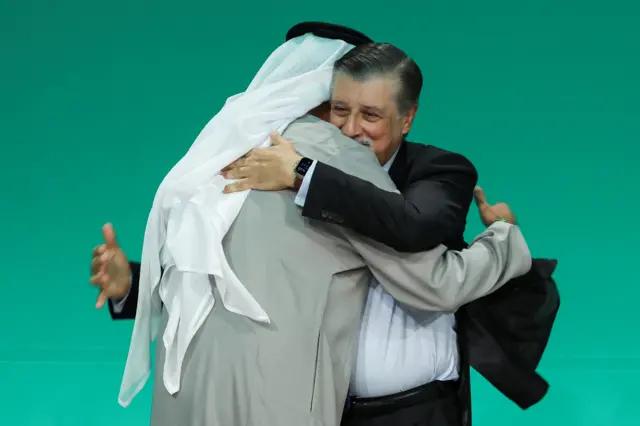More island nations join criticism of dealpublished at 10:08 GMT 13 December 2023
 Georgina Rannard
Georgina Rannard
Climate reporter, at COP28
Another representative of the Pacific islands - who are most vulnerable to climate change - has just spoken. Remember, a delegate from Samoa earlier said the deal was made without them in the room.
John Silk from the fellow Pacific nation the Marshall Islands is critical of the agreement.
"I came from my home in the islands to work with you all to solve the greatest challenge of our generation. I came here to build a canoe together for my country.
"Instead we have built a canoe with a weak and leaky hull, full of holes. Yet, we have to put it into the water because we have no other option," he says.
Silk highlights how climate change is eroding his nation's shores now and that wells are filling with salt water as sea levels rise. But he still says today's deal is progress.
Quote MessageAnd so we must sail this canoe. It has a strong sail - the intent to transition away from fossil fuels is progress that we have fought hard for."
John Silk, Marshall Islands delegate at COP28

